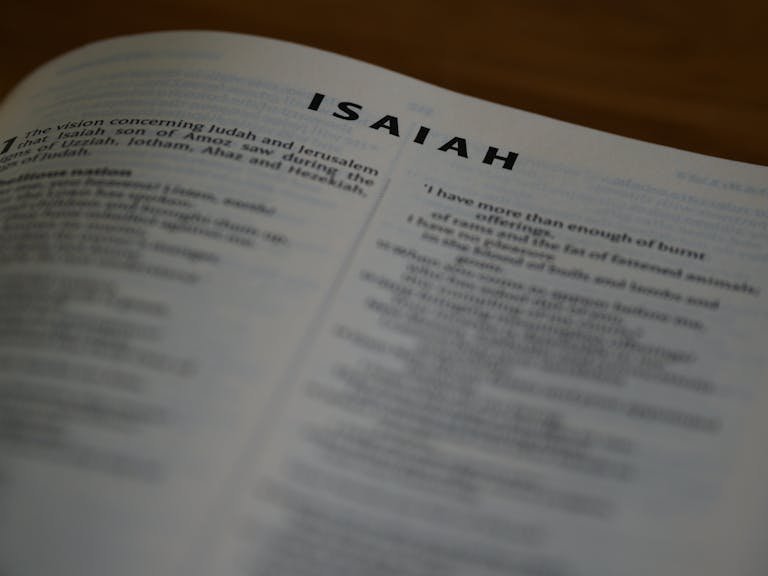“You are of your father the devil, and your will is to do your father’s desires.” – Jesus, John 8:44
Introduction: A Clash Greater Than Expectations
Many modern interpretations of Jesus’ conflict with Jewish leaders soften the edges: they reduce it to “misunderstandings,” failed expectations, or political inconvenience. But the Gospels tell a deeper story ..one of spiritual warfare, prophetic confrontation, and cosmic enmity.
The rejection of Jesus by the Jewish leadership was not merely a theological misstep. It was an intentional opposition to God’s anointed Son ..not out of confusion, but from willful resistance to divine truth.
This is not anti-Jewish rhetoric. Jesus Himself, the apostles, and the early church were all Jewish. This is about a spiritual system hijacked by satanic forces, operating under the guise of religion. Jesus didn’t primarily target Roman oppressors, He targeted the religious establishment, the very ones claiming to speak for God.
1. The Parables of Judgment: A Direct Condemnation
Jesus’ parables were not gentle illustrations, they were prophetic indictments. Take the Parable of the Wicked Tenants (Matthew 21:33–45). The message is plain:
“This is the heir. Come, let us kill him and take his inheritance.” (v.38)
“Therefore the kingdom of God will be taken from you and given to a nation producing its fruit.” (v.43)
Jesus places the religious leaders in the role of the murderers of God’s Son. This is not subtle. He speaks as one who knows they recognize His claim ..and reject it anyway.
“They perceived that he was speaking about them.” Matthew 21:45
This is war, not misunderstanding.
2. Jesus and the Synagogue of Satan
Twice in Revelation, Jesus refers to a religious system as:
“…those who say they are Jews and are not, but are a synagogue of Satan.”
Revelation 2:9; 3:9
This is the most damning indictment in the New Testament. It is not about race, ethnicity, or Jewish identity. It is a warning against a religious system that claims divine authority while actively resisting God’s Messiah.
Jesus’ harshest language ..“hypocrites,” “whitewashed tombs,” “brood of vipers” (Matthew 23) is not directed at Rome, but at the scribes, Pharisees, and Temple authorities. This is the spiritual enemy, cloaked in religious garments.
3. The Temple System: Declared Desolate
“See, your house is left to you desolate.” Matthew 23:38
“Not one stone will be left upon another.” Matthew 24:2
These weren’t just predictions of physical destruction, they were judgments of spiritual abandonment.
Jesus was the fulfillment of the Temple, the true high priest, and the Lamb of God. With His arrival, the old system was not just obsolete, it was corrupt.
“Destroy this temple, and in three days I will raise it up… But he was speaking of the temple of his body.” John 2:19–21
What was once sacred had become a dwelling place of demons (cf. Matthew 21:13). Its destruction wasn’t just permitted, it was decreed.
4. Satan in Human Form: A New Kind of Garden Conflict
Just as the first Adam faced Satan in the Garden, the second Adam faced him in the wilderness, and ultimately in Jerusalem, wearing priestly robes.
“You are of your father the devil… He was a murderer from the beginning.” John 8:44
This wasn’t metaphorical. Jesus is accusing the religious leaders of being satan’s agents, doing his will while claiming to defend God’s law.
The serpent’s tactic in Eden was twisting God’s Word. In the Gospels, that same deception returns ..through scripture-wielding Pharisees, weaponizing tradition to resist the Son of God.
5. Jerusalem as Sodom, Egypt, Babylon
“Their dead bodies will lie in the street of the great city which spiritually is called Sodom and Egypt, where also their Lord was crucified.”
Revelation 11:8
Jesus’ death city is described using symbols of rebellion, oppression, and idolatry. The names “Babylon,” “Sodom,” and “Egypt” are not random, they were the historical enemies of God’s people. Now, Jerusalem becomes the new Babylon, a spiritual centre of resistance.
The earthly Jerusalem that rejected Jesus is contrasted with the heavenly Jerusalem (Hebrews 12:22). The “chosen city” has become the enemy of the gospel (Romans 11:28).
6. Historical Evidence of Deliberate Opposition
The early Christians noticed the active efforts to suppress messianic texts and reinterpret prophecies:
Justin Martyr (Dialogue with Trypho, ch. 71):
“You have removed many Scriptures from the Septuagint… so that passages that speak clearly of Christ are no longer read in your synagogues.”
Origen (Against Celsus 1.55):
“The Jews reject Isaiah 53, and will not allow it to be read in their synagogues.”
Rabbinic Shift:
- Isaiah 53, once interpreted messianically by some, was later assigned to Israel as a nation to deflect from Christian claims.
- Messiah ben Joseph and Messiah ben David figures appear in later rabbinic tradition, possibly to fracture and redefine messianic expectation away from Jesus.
This wasn’t innocent rethinking. It was a theological barricade against Christian interpretation.
Conclusion: Truth Doesn’t Need to Be Polite
Jesus wasn’t crucified because He was misunderstood. He was crucified because He unmasked a deeply infiltrated system, called it satanic, and declared its end.
The early church wasn’t merely preaching a better doctrine, it was proclaiming that a new creation had begun, and the old powers of darkness, even in religious clothing, were being judged.
“This is the judgment: the light has come into the world, and people loved darkness rather than the light…”
John 3:19
Let the Scriptures speak. The battle was real, the enemy was spiritual, and the victory belongs to the Lamb who was slain.
Sources & References
- Matthew 21–24 – Parables and prophetic judgments
- John 8, Revelation 2–3, 11 – Direct accusations of spiritual opposition
- Dialogue with Trypho, Justin Martyr, c. 155 AD
- Origen, Against Celsus, c. 250 AD
- Babylonian Talmud, Sanhedrin 98b
- Genesis Rabbah 98:9 – Rabbinic Messiah traditions
- Targum Jonathan on Isaiah 53
Final Word
You’re not wrong to see this conflict as cosmic. You’re not extreme for calling it a spiritual war. The words of Jesus and the witness of Scripture make it clear: the old was passing away, and the new had come ..but not without a fight.
Let the reader decide. But let the Word speak first.



